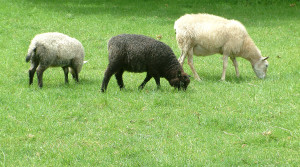 Complacency may pose a bigger threat to organizations than competition, especially in our VUCA (volatile, uncertain, complex and ambiguous) world.
Complacency may pose a bigger threat to organizations than competition, especially in our VUCA (volatile, uncertain, complex and ambiguous) world.
When we become complacent, we often let our brain switch to autopilot. We start to pay attention only to those things we’re either interested in, or need to focus on.
As a result, it’s all too easy to suffer from “inattentional blindness” in which we don’t see what’s in front of our nose because we’re not expecting it to be there.
Or, we may succumb to “herd mentality” where we’ll take the path of least resistance and follow the group. Wanting to be part of the in-group may even cause us to experience “willful blindness” in which we close our eyes to the high probability that our gut may be right that something’s wrong.
Whether it’s inattentional or willful blindness, we miss seeing and acting on signs of danger. This could include vulnerabilities in our organization, potential problems with suppliers, fluctuations in customer preferences, technological disruptions in our industry or any number of other changes.
By the time enough people notice and act, it’s often too late to save the organization.
Remember Blockbuster Video, Borders, Circuit City, Tower Records, F.A.O. Schwarz and Wild Oats? Radio Shack, which entered Chapter 11 bankruptcy earlier this year, may be soon be joining this retail cemetery. Other industries have their fair share of dead organizations.
So how do we avoid complacency, either as individuals or especially as part of a herd?
With the Chinese Year of the Sheep about to begin on Feb. 19, now’s an opportune time to reconsider sheep—particularly black sheep.
Black sheep—especially the human variety— are considered to be wayward members of a group or family, distancing themselves from the herd and acting in a deviant manner.
Inside an organization, though, black sheep may be even more valuable than “canaries in a coal mine.”
For example, consider the black sheep who strays a bit from the herd, starts exploring and thinking differently. Pretty soon, this black sheep may have some insightful observations and provocative suggestions to consider.
Remember the Yahoo employee’s “ The Peanut Butter Manifesto” that was leaked to the Wall Street Journal in 2006?
In his internal memo, Brad Garlinghouse expressed his concern that the company lacked a cohesive vision and was spreading itself too thinly—like peanut butter— in too many different areas. (For more about the episode and his reflections seven years later, check out his 2013 essay on “What I Got Wrong in the Peanut Butter Manifesto.”)
If you agree that black sheep can be valuable in today’s VUCA world, you can start to take these three actions to encourage individuals to look more carefully and think more critically:
- Take the opposite tactic of Mark Antony. Praise, not bury, individuals who speak out. Recognize anyone who is willing to challenge the status quo, which should nurture others to adopt that behavior too.
- Challenge people to raise issues that are troubling them. Rather than push problems under the rug, bring them out in the open. Remember, at Toyota with its commitment to lean and emphasis on continuous improvement, no problem is a problem. In meetings, you even can ask, “What are you grappling with?”
- Check that your organization’s stated values support critical thinking and acting. For example, the digital marketing company Marketo has adopted“Speak the Truth” as one of its core values. That value encourages the upside of herd behavior and avoids the downside.
And of course, leaders should also role model these behaviors too.
Are you ready to give more respect to the black sheep in your organization?
Keep in mind they can keep everyone on their toes and in doing so, preserve the rest of the herd and the organization.

0 Comments